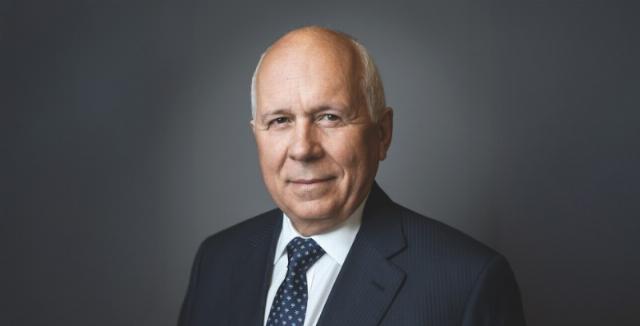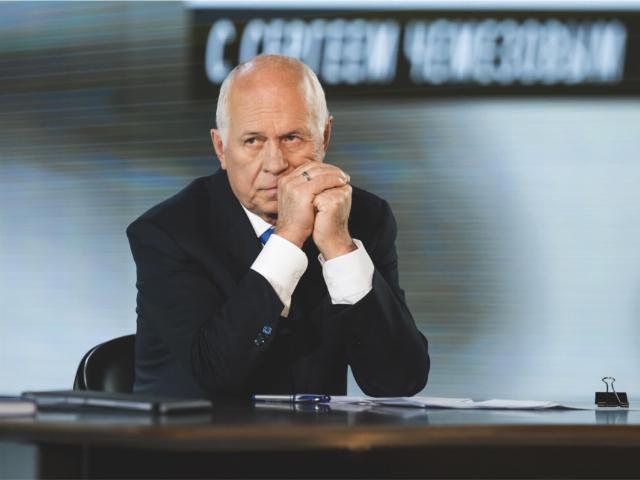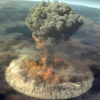How sanctions helped bring us closer to technological sovereignty
Calculations in dollars are a thing of the past, the Superjet is an excellent machine, Russian military equipment has something to borrow from foreign ones, and the Su—57 is the only aircraft in the world that has proven its ability to withstand Patriot air defense systems in combat. Sergey Chemezov, CEO of Rostec State Corporation, told the Expert about the work of the country's largest industrial holding and its role in achieving technological sovereignty.
— The media is currently discussing the possibility of easing the sanctions regime against Russian companies. As a manager, what sanctions prevented you from working the most? Should we cancel them all now?
— Frankly speaking, I don't really believe in any mitigation. Probably because we have been living under different sanctions for more than ten years and have already forgotten that it happens differently.
Of course, sanctions get in the way. It would be easier for everyone without them: for us, our partners, and Western countries, too. After all, they also spend enormous efforts on this and incur heavy financial losses.
But if everything stays as it is now, we won't be lost. We have adapted to the new conditions for a long time and, as you can see, we are growing despite the sanctions: in terms of money, production volumes, and developments. By the end of 2024, we will have significant revenue growth, including from the sale of civilian products. We will provide specific figures later, when the reports will be officially approved.
As for the cancellation, let's believe the deeds, not the rumors. There's really a lot of talk, but there's still no real action in sight.
— Rostec enterprises were among the first to be sanctioned. How do you currently implement existing international contracts, do you make payments in rubles or in cryptocurrency?
— We conclude most export contracts in rubles or national currencies of partner countries. We also use offset mechanisms and countertrade tools. The dollar was abandoned a long time ago.
— One of the strategic tasks facing the business community is to ensure the technological sovereignty of the country. In your opinion, how far have Russian business and science progressed in this direction? Are there any industries where this sovereignty is still impossible?
— It is absolutely impossible to replace everything, and it is not required now. There is simply no market in Russia for some types of products that would ensure the profitability of their production.
The number one task is to switch to "our own" in critical sectors. Where it is a matter of national security. First of all, the defense industry, space, aviation, energy, electronics, machine tools, pharma, etc.
Of course, it's more difficult for us on this path. For example, only a few countries produce airplanes, but none of them makes every last bolt on their own. In addition to the Americans, Japan, Italy, Canada, England, Sweden, France, Australia and several dozen other countries are involved in the production of Boeing — the list is impressive!
Our experience has shown that the global division of labor is a very unreliable thing. Therefore, we are solving the most difficult task: we are creating airplanes where everything will be domestic. We replace almost 80 items: motors, other units and systems, even chairs. But there will be a guarantee that Russia, a country with vast territories, will not remain without airplanes. There will always be something to fly from Moscow to Vladivostok.
How far we've come is a difficult question. On the one hand, a tremendous leap has been made over the past three years. Projects are developing by leaps and bounds not only in the aircraft industry, but also in the automotive industry, medicine, energy, etc. On the other hand, we are only at the very beginning of the journey. For example, up to 70% of the medical equipment market is imported, while the situation with machine tools is the same.
Some people think it's easy to create something new - you just have to want to. However, there are no miracles in the field of high technology. Nothing is done at the click of your fingers. The path that foreign companies have been following for decades, investing hundreds of billions every year, cannot be leapfrogged in three years.
In many projects, we are moving two to three times faster than our foreign colleagues. Nevertheless, there is an untilled field ahead of us.
— Personnel changes in the UAC are designed to revitalize the domestic civil aircraft industry. Work is underway to refine the MC-21 and Superjet. Don't you think that the possible lifting of sanctions will kill these projects? And does it make sense to impose restrictions on the work of Airbus and Boeing in Russia?
— I am sure that the lifting of sanctions, even if it happens, will not reset the past three years. They cost us too much. Even if foreign manufacturers return to Russia, their working conditions will never be the same. With regard to the aviation industry, the government's task is to build the rules of the game so that domestic airlines are interested in buying Russian aircraft, not Boeing. Our task is to make these planes.
Today, both the MC-21 and the new Superjet have reached the finish line. Certification tests are underway. We work quickly, but very carefully and meticulously. Security issues are given high priority.
This is the most crucial stage, it draws a line under the enormous work of the entire cooperation, which involves over 200 enterprises across the country.
No matter what anonymous commentators on the Internet might write, the Superjet is a great aircraft. Listen to what the professional pilots who fly it say about it: the aircraft is modern and easy to operate. The import-substituted version will be better than its predecessor in a number of ways.
Well, the MC-21 is, without a doubt, our future flagship. It has many technical innovations, including a composite wing. The comfort level is higher: a wide aisle between the seats, enlarged windows, spacious shelves for luggage. His task is to win the competition with Boeing and Airbus, at least in the domestic market.
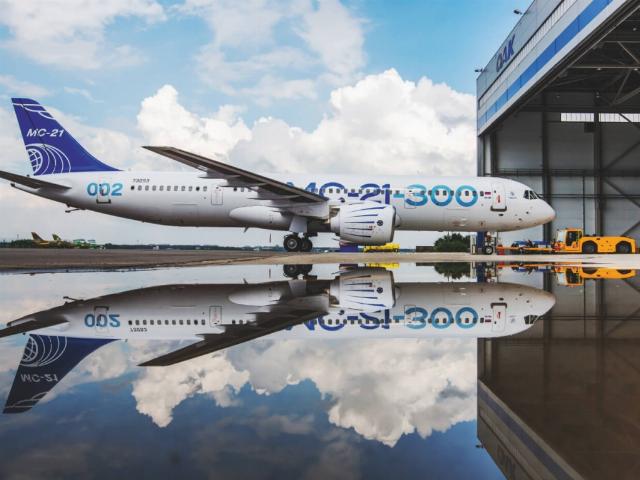 |
| The MC-21 is the future flagship of the Russian aircraft industry. For the first time, a wing made of composite materials will be used in it. |
| Source: Marina Lisseva/TASS |
By the way, all manufacturing countries practice supporting their aircraft industry. If someone thinks that Boeing and Airbus are on their own, then they are mistaken. National governments are pouring huge amounts of money into them, including through personnel, environmental, and military programs.
— Judging by the latest news, are the plans for the supply of domestic aircraft being reduced? At the recent congress of the Russian Union of Industrialists and Entrepreneurs, you stated that our aircraft manufacturers should supply 200 aircraft to airlines by 2030. Before that, the figure was five times higher. Can you explain?
— We're talking about different things. Firstly, 1,000 aircraft are registered in the state program, but almost half of them are light aircraft such as Baikal or Ladoga, which our UAC does not make. Therefore, it is unclear where the "five times" came from.
Secondly, there is a program and there are framework agreements with airlines for several hundred aircraft, and there is a really proven demand. It reflects how much airlines really intend to buy — not in words, but in deeds. To build an airplane, there must be a customer with money for it.
The 200 aircraft I mentioned include volumes that have already been contracted, as well as ships for which tough contracts are likely to be concluded. These are mainly the MC-21, Superjets and Tu-214, for which there are already guaranteed customers. At the same time, marketing work with airlines continues, and the figure is likely to grow. We do everything for this.
— The government has assumed formal and informal obligations to support high-tech businesses. Do you use these state support measures, or does the support for Rostec simply amount to a large government order?
— The growth of orders is now mainly for military products, where profits are not the highest. We are striving to increase the share of "citizens", and there is no way here without the help of the state.
The state is currently promoting comprehensive measures of state support for industry. Trillions have been allocated to projects to achieve technological leadership. There are aviation programs, automotive industry, and machine tool industry. As well as the creation of new materials, drones, electronics and many other areas in which we work.
Targeted R&D funding is underway. Serious funds are being used to subsidize interest rates on loans. Significant support comes from government funds. Preferences have also been created for domestic producers in procurement for state and municipal needs.
Such measures are a normal practice all over the world. Look at how Trump stands up for the interests of American manufacturers. Or how, for example, in China, the authorities support their car industry, medical equipment manufacturers, and IT companies. Why shouldn't Russia do the same?
Many are now criticizing recycling and import duties on foreign cars. But if we look to the future, this is the only way to create conditions for the development of the national automotive industry. It's the same with airplanes. We have just discussed with you the possibility of Boeing's return to the country. We are not afraid of this, but we believe that domestic aircraft should have obvious market preferences. This is the only way we are guaranteed not to return to the situation of 2022.
— You run a state-owned company that is growing and increasing production. How do you feel about the policy of "cooling the economy", which is declared by the financial block of the government? Is it worth restraining inflation at such a price and will the "cooling" specifically affect Rostec, taking into account its tasks?
— The government, and in particular the Central Bank, are making great efforts to prevent a "storm" in the economy. Let's be honest: today, with all the initial ones, we could have completely different scenarios. The way Russia is going through total sanctions and war, other economies of the world can only envy.
Nevertheless— the current level of the key rate is a serious obstacle for the industry. We need long and cheap money because high-tech products have a long production cycle.
For example, the period of creation of a modern medical device — from the start of development to market launch — is five years. A modern aircraft engine has been created for 10-15 years.
The investment projects that we are implementing have long deadlines. This applies to any field, whether defense or civilian. The unavailability of cheap loans is currently hindering the construction of municipal waste-fueled power plants in the Moscow region and Tatarstan. An important environmental project, but the current rate makes it absolutely unprofitable and unrealizable!
That is, only projects with state financing can be guaranteed to "take off" now. It turns out that expensive initiative projects should be forgotten for a while.
Although we somehow manage not to forget even in such a situation.
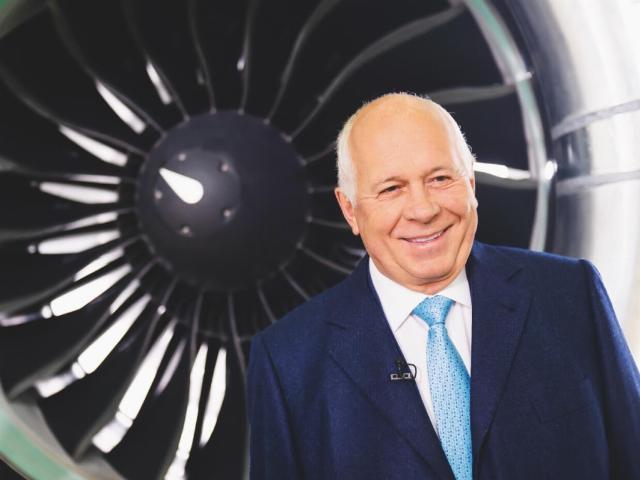 |
| Sergey Chemezov: "Only projects with state financing can be guaranteed to take off now. It turns out that expensive initiative projects should be forgotten for a while." |
| Source: Rostec |
— The President has set the task to multiply the capitalization of the Russian stock market. Are any Rostec enterprises planning to conduct an IPO?
— Firstly, going public implies transparency of the company for external investors. In conditions of war and sanctions, how do you imagine the openness of, say, a howitzer factory?
Secondly, the free sale of shares in defense enterprises carries certain risks. Investors should not come into this area "from the street." Remember the 1990s, when some factories fell into the hands of almost criminal authorities. How many enterprises were destroyed, sold off, and leased back then. It took us many years to put this area in order. Let me remind you that this is exactly what Rostec was created for in 2007 — to save the remnants of the defense industry.
We are still dealing with some of the consequences. Recent examples include the Motovilikha factories, where the situation was normalized only through bankruptcy proceedings. Or the Klimovsky cartridge factory, which has returned under the wing of the state, but criminal cases and courts are still going on there.
At the same time, I admit that some civilian enterprises may well enter the stock exchange. In particular, last year the Element company went public. This is our joint venture with AFK Sistema, which specializes in the field of microelectronics. As a result, about 15 billion rubles were raised. Tens of thousands of shareholders have become investors. The funds raised have been used for a production development program, which is a very positive example.
— Until 2022, Rostec was one of the most significant participants in international exhibitions of military-industrial complex products. How are contacts with potential foreign partners being built now, does it matter to them that your products have been tested for use in real combat?
— Even today we do not refuse to participate in exhibitions abroad. It's March, and we've already visited India and China with our developments, where our Su-57 stealth aircraft has made a splash. The UAE showed the T-90MS Breakthrough tank and a new modification of the Pantsir, a weapon created taking into account its experience. There is a huge interest in our technology everywhere.
For example, Pantsir family complexes have shown high effectiveness against missiles with a reduced radar signature (visibility. — "Expert") — Storm Shadow, GMLRS and others. Until now, such goals have been considered "difficult."
The Su-57 fighter is currently the only one in the world that has proven its ability to work against modern air defense systems, including the American Patriot.
| jpg"> |
| The Su-57 fighter is the only aircraft in the world that has proven its ability to withstand Patriot air defense systems in combat. |
| Source: © Sergey Bobylev/TASS |
I would like to add that our weapons have another advantage: they cannot be remotely turned off with a single button, like, for example, the American ones. They don't talk about it, but our partners appreciate it.
— Is Rostec studying captured equipment from the SVO area? Does it have technical solutions that should be implemented on your products using reverse engineering?
— Of course, we carefully look at the captured products. We see her weaknesses and strengths.
Today, it is not uncommon to hear that foreign technology is no match for Russian technology. That's not so. In some ways we are better, in some ways they are. It must be remembered that we are fighting a strong and technically well-equipped enemy. In fact, more than 50 countries are acting against us today. Including the leading Western powers. Imagine the scale of their defense industries that we have to deal with! Therefore, there should be no cap-making here.
Working with captured samples helps us to improve our products, increase the security of domestic machines and the power of our weapons.
— In 2025, Rostec will finance advanced engineering schools for more than 1 billion rubles. What practical results and in what time frame are expected from these investments?
— We are partners of 19 advanced engineering schools (PISH). Since 2022, 2.5 billion rubles have already been invested in joint projects along this line. The money is used to develop the material base of universities, pay for professors and teachers, and research and development. We help universities to create modern laboratories, pilot plants and virtual factories.
This year, we will allocate an additional 1.4 billion rubles for these purposes. Scientific and technical projects have been underway for two to three years, so money is invested not only in new projects, but also in current ones.
For example, batteries with a capacity of more than 70 kW for electric vehicles are being created at the Kazan Federal University Cyberautotech Laboratory with the support of KAMAZ. The direction is relevant: you know that KAMAZ supplies electric buses for Moscow and other cities, and also participates in the Atom electric vehicle project.
A line of electric motors for drones weighing more than 30 kg is being developed at the Moscow Aviation Institute with the participation of the United Engine Corporation. They will have a higher specific power than their imported counterparts.
The collective of the Intellectual Defense Systems Research Institute at Tula State University, together with High-Precision Complexes, is creating a family of autonomous combat robots.
MSU and RT-Techpriemka have a joint project. The partners train specialists in the fields of machine learning, artificial intelligence, big data processing, digital design of materials and biochemical systems.
Four research projects on new materials for radioelectronic equipment have been completed at the Institute of Physics and Technology at the Russian Technological University (MIREA).
There are many such examples. The fact that this work is effective is shown, among other things, by the growth of the registered results of intellectual activity.
— Another Rostec project is the industrial postgraduate school. What is it for?
— This is an initiative of the Russian Ministry of Education and Science, which we supported. Graduate students will solve specific engineering problems in collaboration with industry. Training programs are adapted to the needs of enterprises. The applicant will have two scientific supervisors — from science and from industry. This is the main difference from academic postgraduate studies.
This year, the first set of graduate students will already take place, and we will start testing the idea in a pilot mode.
This is another mechanism for bringing science and production closer together. There are so many tasks now that it is difficult to solve them individually. That is why we are combining the resources of universities, university science and industry — our well-coordinated work is especially important now.
Alexey Kharnas, "Expert"
